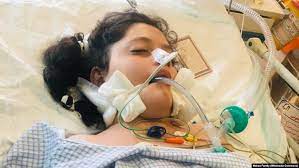According to Iranian news agencies and social media footage, worried parents demonstrated on Saturday in the Iranian capital Teheran and other cities in response to a string of alleged poison attacks that have afflicted schoolgirls in dozens of schools.
Several schoolgirls have been stricken by the ailments in recent months, which have not yet been diagnosed. Iranian officials have accused Tehran’s adversaries and suspect the girls may have been poisoned.
The kids were subjected to “moderate poison” attacks, according to the nation’s health minister, and some legislators have hypothesized that radical Muslim organizations opposed to girls’ education may have targeted the youngsters.
Investigators had discovered “suspect samples,” according to Iran’s interior minister, who claimed they were being examined.
The minister, Mr. Abdolreza Rahmani Fazli, made the announcement in a statement carried out by the official news agency IRNA. “In field studies, suspicious samples have been found, which are being investigated… to identify the causes of the student’s illness and the results will be published as soon as possible,” he added.
More than 30 schools were closed on Saturday due to illness in at least 10 of Iran’s 31 provinces.
Social media videos showed parents lining up at schools to pick up their kids and some pupils being transported to hospitals by ambulance or buses.
According to a video authenticated by reporters, a protest by parents about the sicknesses outside the Education Ministry headquarters in western Teheran on Saturday quickly devolved into an anti-government march.
Protesters screamed, “Basij, Guards, you are our Daesh,” equating the Revolutionary Guards with the Islamic State organization.
Unverified videos claim that similar rallies were also held in Isfahan, Rasht, and two more locations in Teheran.
For Iran’s clerical rulers, who have been dealing with months of anti-government rallies brought on by the death of a young Iranian woman while in the care of the morality police who strictly enforce dress standards, the epidemic of schoolgirl illness comes at a crucial time.
In recent days, social media posts have featured images and videos of ladies who are uncomfortable, queasy, or experiencing heart palpitations. Others expressed headache complaints.
Germany and the United States have expressed concern, and the United Nations human rights office in Geneva has urged for a transparent inquiry into the alleged attacks.
Iran condemned what it perceives as foreign involvement and “hasty reactions” and said on Friday it was probing the reasons for the occurrences.
Nasser Kanaani, a spokesperson for the foreign ministry, said to state media that one of Iran’s primary responsibilities is to pursue this matter as soon as possible and give verified information to allay the concerns of the families and to hold the perpetrators and the causes accountable.
The September-starting anti-government demonstrations saw participation from schoolgirls. They have destroyed images of the Supreme Leader, Ayatollah Ali Khamenei, called for his execution, and removed their required headscarves in class.


















